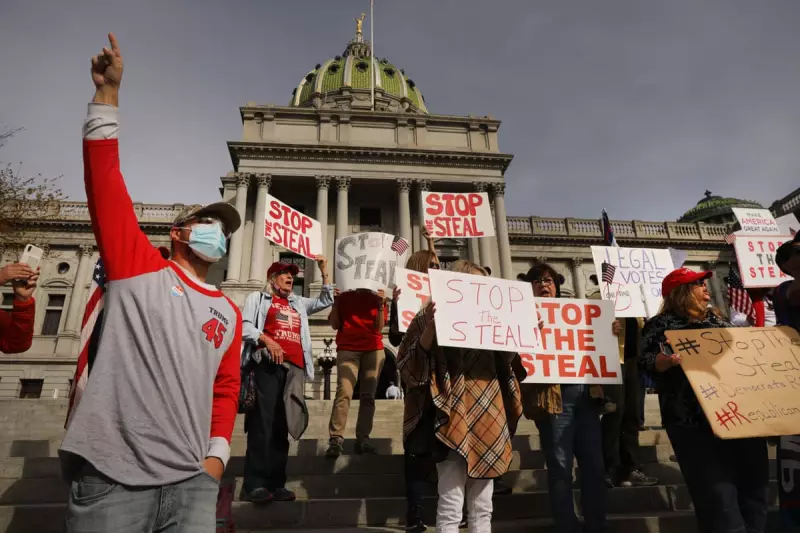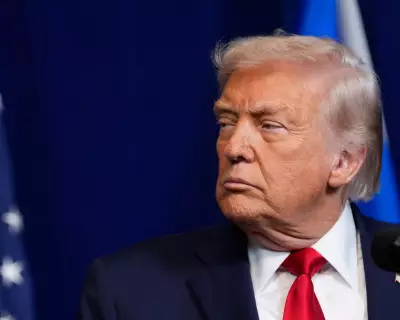
US Justice Department Probes Discredited Election Conspiracy
Federal investigators under Donald Trump's Justice Department have been conducting interviews regarding thoroughly debunked allegations that Venezuela played a role in stealing the 2020 presidential election, the Guardian can reveal. This extraordinary investigation into a conspiracy theory already rejected by US courts and major media networks could potentially strengthen the administration's justification for military action against Venezuela's socialist regime.
The Key Players and Their Allegations
According to four separate sources, two prominent promoters of this discredited theory—former CIA officer Gary Berntsen and Venezuelan expatriate consultant Martin Rodil—have repeatedly briefed W Stephen Muldrow, the US attorney for Puerto Rico. They have provided what they claim is evidence, documents, and witness testimony supporting their assertions.
Beyond these meetings in Puerto Rico, individuals advancing the conspiracy have also been interviewed by federal investigators working with the Panama Express (Panex) taskforce in Tampa, Florida. This unit, traditionally focused on Venezuelan drug trafficking and money laundering, appears to have expanded its remit to include these election fraud claims. Both Muldrow's office and the Tampa US attorney's office declined to comment when approached by the Guardian.
The core of the conspiracy theory alleges that electronic voting systems from companies Smartmatic and Dominion were secretly controlled by the Venezuelan government, first under the late Hugo Chavez and then by his successor, Nicolás Maduro. This theory was a central pillar of Trump's "Stop the Steal" movement following his 2020 election loss.
A Theory Thoroughly Discredited
This narrative has been comprehensively rejected by numerous authorities. A judge in Delaware ruled it false in 2023, and major conservative news networks including Fox News, Newsmax, and OAN subsequently paid out a total of hundreds of millions of dollars in defamation damages for promoting the baseless claims.
Despite this, the theory is experiencing a revival within Trump's justice department, effectively merging two of the former president's long-standing preoccupations: his claims of a "rigged election" and his antagonism towards Venezuela's socialist government. With the Trump administration already engaging in a military buildup in the Caribbean and increasing its hostile rhetoric towards Maduro, this investigation could provide a fresh pretext for military intervention.
Berntsen, a fierce Trump supporter and advocate for invading Venezuela, defended his position to the Guardian, stating, "I don't dabble in conspiracy theories. I spent my life defending our country and constitution." He further claimed that "indictments are going to be released in the near future" related to entities he believes stole US elections.
Rodil, who claims two decades of consulting for US law enforcement, faces his own controversies. The International Consortium of Investigative Journalists reported in 2022 that he was under investigation in Spain for allegedly extorting Venezuelans. Rodil denied these allegations to the Guardian.
Political Implications and Receptiveness
Sources familiar with the relationship describe US Attorney Muldrow as "very receptive" to the allegations presented by Berntsen and Rodil. Muldrow, originally appointed by Trump in 2019 and one of the few US attorneys retained by the current administration, is described as a staunch Republican and Trump supporter.
The investigation's progression suggests how Trump's justice department is being leveraged to reframe the narrative of his 2020 electoral defeat. Ralph Pezzullo, co-author of Berntsen's book and author of a recent e-book promoting the conspiracy, told the Guardian, "They've been attacking the US with the election machines and with the drugs. Trump knows they need to be stopped."
This situation underscores the enduring potency of disinformation in US politics and raises serious questions about the use of federal institutions to investigate claims already dismissed by the judicial system and settled in court.





